Soda
Baby's food

Soda is a drink that usually contains carbonated water, caffeine, a sweetener, and flavoring. Soda is usually high in sugar and calories but low in nutritional value.
Reasons children should not drink soda
- Zero nutrients: Most sodas do not contain nutrients but are high in calories and sugar. Studies have shown a link between soda consumption and childhood obesity.
- Tooth decay: It has been shown that soda can cause tooth decay. Not only that the sugar in soda causes cavities, but also the acids in soda etch off tooth enamel. It takes acid only a short time to dissolve tooth enamel.
- Diabetes: Drinking soda every day can lead to blood sugar disorders, including type 2 diabetes.
- Toxins: Aspartame, often used in diet sodas, is a potent brain toxin and endocrine disruptor. Soda can also enhance toxins in monosodium glutamate, which can be dangerous to the brain.
- Diuresis: Soda acts as dehydrating diuretics, much like coffee and alcohol, and it can inhibit the proper digestive function.
- Gut problems: Persistent consumption of soda can upset the fragile, acid-alkaline balance of the stomach. This can cause inflammation of the stomach and can be quite painful.
- Appetite suppression: Soda suppresses the appetite of children, making them less likely to eat nourishing foods.
- Bone issues: Soda contains phosphorus, which can deplete the calcium needed to build healthy bones.
- Hyperactivity: Studies have shown the link between soda and aggression in children.
Soda and caffeine
Caffeine is a natural stimulant that is often added to sodas. Caffeine is classified as a drug because it stimulates the central nervous system. Although it affects adults and kids similarly, only a small amount of caffeine is enough to produce an effect in younger kids.
Symptoms of caffeine
- Faster heart rate
- Higher blood pressure
- Trouble sleeping
- Difficulty concentrating
- Jitters and nervousness
- Upset stomachs
- Headaches
Tips to help children stay off soda
- Compare nutritional values. when choosing what to drink.
- Encourage your child to drink milk. Two cups of whole milk or milk alternatives per day starting from age 1 are ideal.
- Encourage your child to drink sufficient water. Water should be the first choice to quench thirst.
- Use a fun bottle. Decorate bottles with your child. The more they like the bottle, the more likely they will drink from it.
- Brighten up water. You can add fruits like frozen berries to water to make them taste and look interesting.
- Dilute juices and sugary drinks with plenty of water.
Verified:
Dr. Piyawut Kreetapirom, MD. license no. 41578 (15 July 2021)



